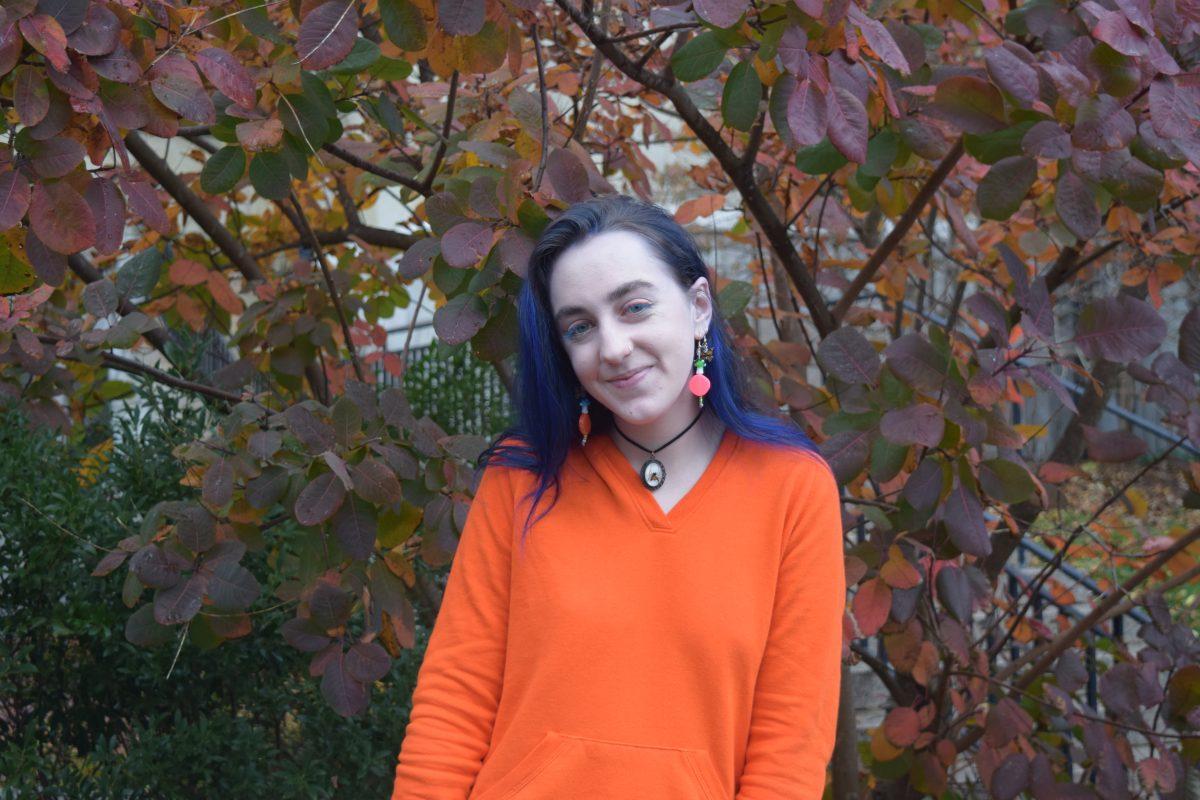When Julianna Poupard ’21 was filling out the religions interest form before she arrived at Wellesley, she felt thrilled when she saw that one of the options was “pagan.” At her middle and high schools, she’d never seen that kind of institutional recognition for her religious beliefs.
Poupard remembers feeling excited to meet other pagans on campus.
“I’m going to get to campus, and I’m going to have a whole witchy group of friends, and it’s going to be awesome, and we’re going to see each other all the time!” she recalls thinking to herself.
But when she got to campus, she didn’t find the organized pagan community she’d imagined. In fact, she barely found a pagan community at all. So she emailed Tiffany Steinwert, dean of religious and spiritual life.
In a meeting with Steinwert, she learned that there had been a pagan community on campus, but when the leader graduated last year, the group dissolved.
“There used to be a group, and they were called the Pagan Student Association,” said Steinwert. “All religious groups register through our office, and that does two things. One, it helps me to connect students who want to practice a particular faith tradition, and two, it helps me resource the groups that exist.”
Steinwert encouraged Poupard to utilize the resources of the Office of Religious and Spiritual Life to create the pagan community she was seeking.
“Because I was so enthusiastic about looking for a community, [Steinwert] decided that I am going to build the community,” Poupard said. “So right now, I have done any and all planning that has been for any kind of communion.”
The Multifaith Center does have a pagan worship space, but it is fairly minimal, according to Mila Cuda ’21. Cuda is one of about five people who self-identify as part of the organized pagan community at Wellesley.
“They have an altar for us [in the multifaith center], but it’s just a wooden bowl,” said Cuda.
Cuda and Poupard hope to increase their institutional recognition beyond the limited resources they have been offered.
Their religious practice has been fairly limited, since both students are first years and are busy settling in, but almost two months into their first semester at Wellesley, they’ve already held one event: a dinner and ritual for the autumn harvest holiday, Mabon.
“Most pagans are very solitary, and everybody’s practice is very personal to them,” Poupard explained. “I think one of the universal things is that paganism is very heavily based in nature, that we believe in energy and the power of nature and your own inner power.”
Under that umbrella, though, there are many different denominations of paganism, including druidism, Wicca and specializations such as storm and kitchen witchery.
As for Poupard’s personal form of paganism, she describes herself as a “polytheistic Hellenic eclectic pagan witch”—“polytheistic” because she believes in many gods; “Hellenic” because she focuses her practice on the Ancient Greek pantheon; “eclectic” because she doesn’t adhere to a specific pagan path, such as druidism and “witch” because she engages in practices of witchcraft.
Being a witch, she explained, is “different from being pagan, because paganism is a religion, and witchcraft is a practice.”
So, one can be a pagan witch, a secular witch or even a witch who identifies with another religion altogether, such as Christianity or Judaism.
Cuda is also a practicing witch, but unlike Poupard, she bases her practice on Celtic gods.
“My Irish side is very aggressive in my soul” she said. “I’m very much based in the angel realm, and the fairy realm is what I mostly do. Contact with fairies, goddesses and angels.”
Like most pagans, Cuda and Poupard express their religion in highly individualized ways. However, they would both like to have a greater pagan community in which to explore their faith—which is what they thought they would get when they checked “pagan” on the interest form before they arrived at Wellesley.
The two will be holding more meetings for future pagan holidays, and they hope to install a ritual stone somewhere on campus, with the support of the multifaith center. Steinwert is supportive of the idea. She worked at Syracuse University before coming here to Wellesley and collaborated with the pagan chaplain there on the installation of a ritual stone outside their chapel.
Poupard and Cuda are enthusiastic about the proposed ritual stone.
“It’s basically where we would go for any sort of holy practice,” Poupard said. “We could hold rituals there, we could do prayers there, spells, all that kind of thing.”
Cuda encourages students who are interested in paganism to attend their meetings with an open mind and be ready to engage with their practice, even though paganism is likely unfamiliar to most students.
“If someone is interested, then be interested,” she said. “Do research, talk, experiment. That’s the only way you’re going to find what works for you. But then at the same time, I feel like if you go into the experience thinking it’s a silly thing, it’s harder to get results. You have to find your faith by having faith that whatever it is you are engaging in is a serious practice.”
Steinwert agrees that in order to build community, it is important to learn about new faith traditions.
“In order to get to know somebody, knowing what they value and what they believe is an integral part of that,” she said. “We want to create space for students to explore, to figure out who they are and who they want to become for the sake of the world.”






